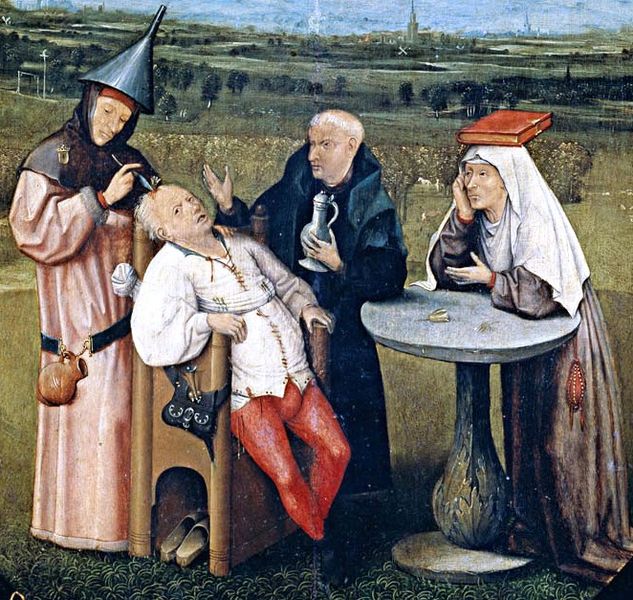When and what was the first surgery performed by mankind? Many would believe it to be a simple procedure such as suturing a wound. But would you believe that the earliest surgical procedure was brain surgery in 6500BC? Surprisingly, this is true.
Archaeologists have found a large amount of skulls with a large, round hole in them. Some of the oldest skulls with holes were found in France, where 40 skulls from the Neolithic era were excavated. Archaeologists believed these holes to be from a battle leading to a dent in the skull. However, these holes were actually the results of a surgery (signs of bone recovery can be seen around the edges of the hole, suggesting the patients were alive for some time even after the operation). These skulls all belonged to trepanation patients.
Trepanation is the surgical opening of the skull by drilling a hole in it. This is an ancient surgery that can be found throughout history. Hippocrates and Galen from ancient Greece both recorded detailed instructions on trepanation, ancient Incans performed the surgery and it was also common during the Middle Ages and the Renaissance in Europe. These surgeries were most likely indicated for skull fractures where fragments were embedded in the brain. During the Middle Ages when it was better known that the brain was the seat of the soul, trepanation was used for psychiatric treatments too. For example, in 15th century Netherlands, trepanation was used to excise a so-called stone of madness that was supposedly the cause of insanity. Like this, it was believed that trepanation could release the demons and insanity trapped in the skull.
Although this operation sounds hilariously misled, it is still used in modern medicine. Of course, it is not known to treat insanity, but rather to treat brain bleeds. Extradural and subdural haemorrhages occur when a rupture of an artery in the brain causes a collection of blood in the skull, compressing the brain. This is a dangerous situation which can lead to a stroke or even death. One treatment of this condition is trepanation, or a burr hole, where a small hole is drilled in the skull to relieve the pressure, lowering intracranial pressure and stabilising the patient. Trepanation is an excellent example of how we can learn from the past and how medical knowledge from ancient times is sometimes still valid.


